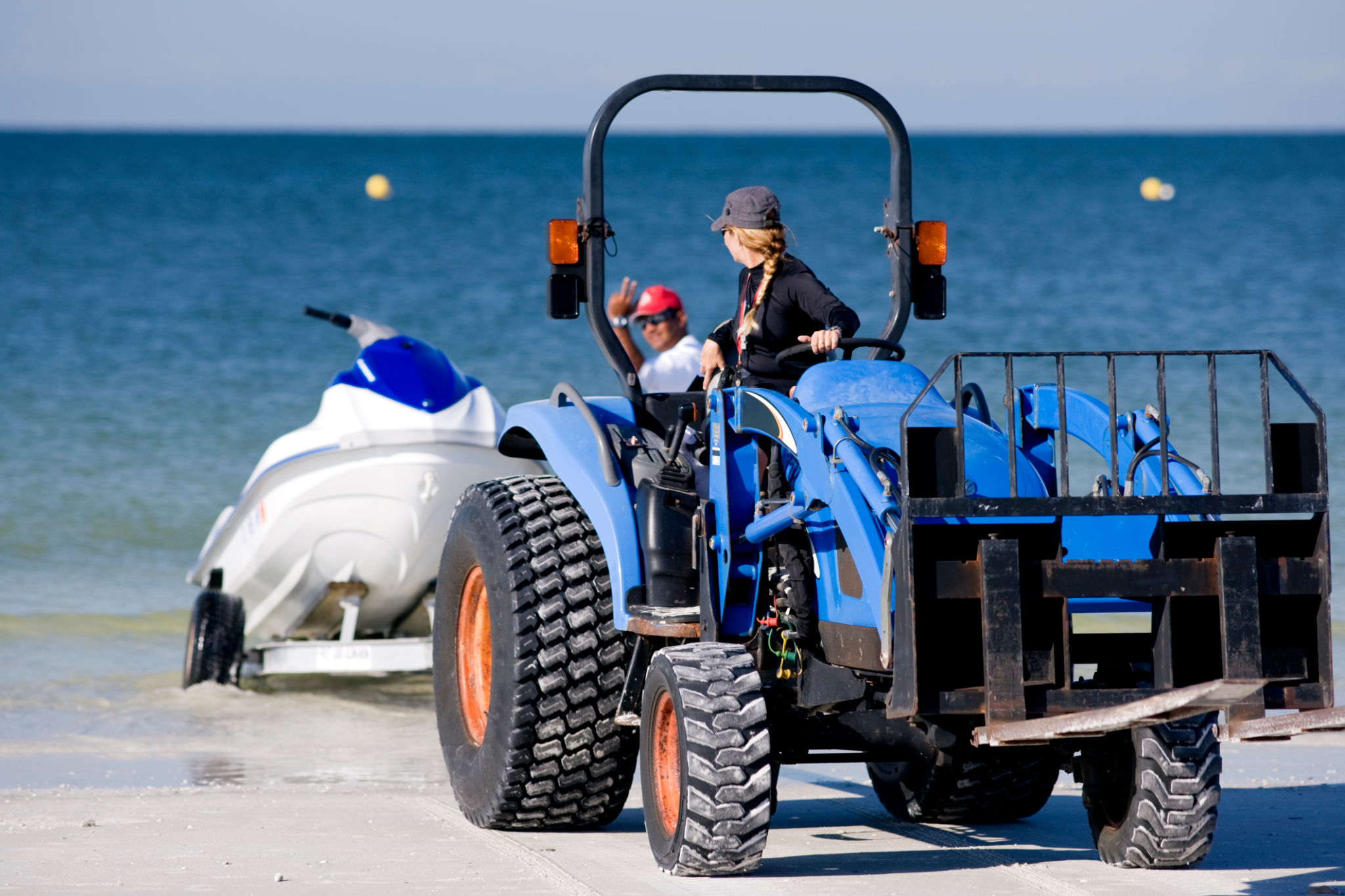How to Safely Operate a Jet Ski: Tips for Beginners and Pros
Understanding the Basics of Jet Ski Operation
Jet skiing is an exhilarating way to enjoy the water, but it's important to understand the basics before hitting the waves. Whether you're a beginner or a seasoned pro, knowing how to operate a jet ski safely is crucial. Start by familiarizing yourself with the controls, including the throttle, handlebars, and safety lanyard. This knowledge forms the foundation for a safe and enjoyable experience.
For those new to jet skiing, it's advisable to take a safety course. Many areas offer classes that cover essential skills and safety protocols. Completing a course not only boosts confidence but also ensures you're aware of local regulations and best practices.

Safety Gear: What You Need
Wearing the right safety gear is non-negotiable when operating a jet ski. A well-fitting life jacket is essential for all riders, regardless of swimming ability. Additionally, consider wearing protective eyewear to shield your eyes from the sun and water spray. Gloves and water shoes can also enhance your grip and comfort.
For added protection, some riders opt for wetsuits or rash guards, especially in cooler waters. These garments offer thermal insulation and can prevent abrasions. It's also wise to carry a whistle or other signaling device in case of emergencies.
Pre-Ride Checklist
Before setting off on your jet ski adventure, conduct a thorough pre-ride check. Ensure the fuel tank is full and inspect the hull for any damage. Verify that the safety lanyard is attached securely to your wrist or life jacket, and check that all controls are functioning properly.

It's also important to be aware of the weather conditions. Avoid riding in poor visibility, high winds, or storms. A quick weather check can prevent potentially dangerous situations and ensure a smoother ride.
Maneuvering Your Jet Ski
Controlling a jet ski requires practice and precision. Start by mastering basic maneuvers such as accelerating, steering, and stopping. Remember, unlike cars, jet skis do not have brakes; slowing down involves releasing the throttle and allowing the craft to coast to a stop.
- Always maintain a safe distance from other watercraft and obstacles.
- Use gentle steering inputs to avoid sudden movements that could unbalance the craft.
- Practice turning in open water until you feel comfortable with the jet ski's responsiveness.
Advanced Techniques for Experienced Riders
For those with more experience, learning advanced techniques can enhance your riding skills. These include mastering tight turns, wave jumping, and handling rough waters. However, always prioritize safety over showcasing your skills.

Engage in advanced maneuvers only in open waters away from other vessels, swimmers, or restricted areas. Practicing in controlled environments helps you refine your skills without compromising safety.
The Importance of Staying Informed
Staying informed about local water regulations is essential for all jet ski operators. Laws regarding speed limits, restricted zones, and right-of-way can vary significantly depending on your location. Ignorance of these laws can lead to fines or accidents.
Joining local boating clubs or online forums can keep you updated on any changes in regulations or new safety tips. Engaging with other enthusiasts is also a great way to share experiences and learn from others.
Post-Ride Care and Maintenance
Proper maintenance after each ride extends the lifespan of your jet ski and ensures it remains in good condition. Rinse the craft with fresh water to remove salt or debris that could corrode the engine or hull. Check for any signs of wear or damage that may need attention.

Regularly servicing your jet ski according to the manufacturer's guidelines is also crucial. Keeping up with scheduled maintenance prevents unexpected breakdowns and keeps your jet ski running smoothly season after season.
Conclusion: Enjoying Your Jet Ski Responsibly
Jet skiing offers thrilling adventures on the water, but responsible operation is key to ensuring safety for yourself and others. By understanding the basics, wearing proper gear, and staying informed about regulations, you can enjoy countless hours of fun on your jet ski without incident. Remember, safety always comes first, so make every ride a safe one!